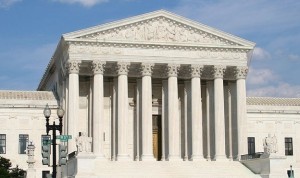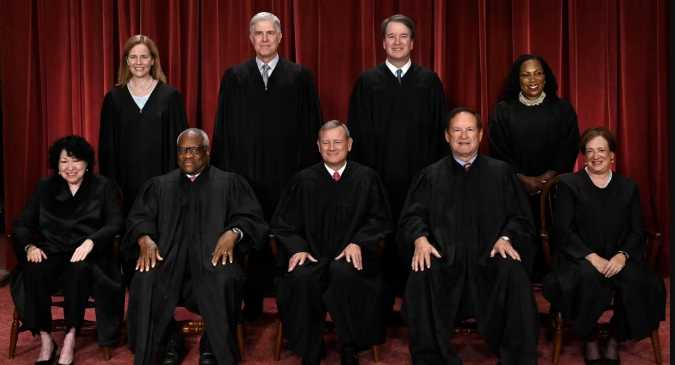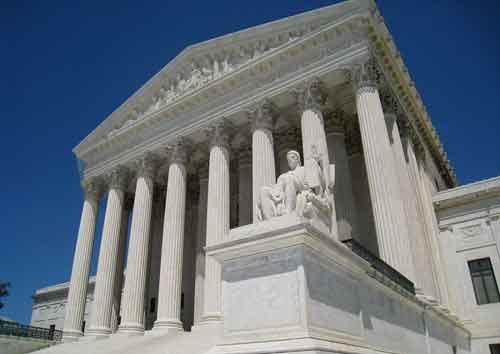 The nation’s highest court ruled on Thursday that President Obama violated the Constitution when he filled a series of vacancies on the National Labor Relations Board during a Senate ‘Pro Forma” session two years ago. A “Pro Forma” session is the term used when Congress is briefly called to order then adjourned every few days.
The nation’s highest court ruled on Thursday that President Obama violated the Constitution when he filled a series of vacancies on the National Labor Relations Board during a Senate ‘Pro Forma” session two years ago. A “Pro Forma” session is the term used when Congress is briefly called to order then adjourned every few days.
The court ruled 9-0.
Generally, the President can make recess appointments when Congress is in recess, and numerous presidents have done so in the past. But, in the ruling, it was determined that making recess appointments while Congress is adjourned for three days or less is inadmissible under the Constitution. Recess appointments can still be made, but presidents can only do so when Congress is adjourned for ten days or more.
The Supreme Court did not go so far as to validate the federal appeals court decision that would limit recess appointments to remote periods and circumstances however. Justice Stephan Breyer was joined in the majority on that decision by Justices Anthony Kennedy, Ruth Bader Ginsberg, Sonia Sotomayor, and Elena Kagan, Breyer said, “Because the Senate was in session during its pro forma sessions, the president made the recess appointments before us during a break too short to count as recess. For that reason, the appointments are invalid.”
The White House expressed disappointment with the Supreme Court ruling, but said, The president remains committed to using every element of his executive authority to make progress on behalf of middle class families.”
This new ruling will make it rather difficult to push through recess appointments in the future when either chamber of Congress is ruled by the opposing party as that chamber can use “pro forma” sessions to keep any recess appointments from taking place. Only if both chambers are controlled by the same party will any recess appointments be possible.
Senate Republican leader Mitch McConnell called Obama’s recess appointments a “Brazen power grab and welcomed the ruling and said, The president made an unprecedented power grab by placing political allies at a powerful federal agency while the Senate was meeting regularly and without even bothering to wait for its advice and consent.”
In regards to recess appointments in general, Justice Scalia wrote, “A self-aggrandizing practice adopted by one branch well after the founding, often challenged, and never before blessed by this Court—in other words, the sort of practice on which the majority relies in this case—does not relieve us of our duty to interpret the Constitution in light of its text, structure, and original understanding.”
In the majority opinion, Breyer wrote in rebuttal, “Justice Scalia would render illegitimate thousands of recess appointments reaching all the way back to the founding era. More than that: Calling the Clause an ‘anachronism,’ he would basically read it out of the Constitution,” Breyer wrote. “He performs this act of judicial excision in the name of liberty. We fail to see how excising the Recess Appointments Clause preserves freedom.”
Alaska’s Senator Murkowski made a statement after the Supreme Court decision, saying,
“The President’s unilateral, “pen and phone” approach to governing does not work and – in the case of recess appointments – is unconstitutional. This issue is not about partisanship or ideology or even the nominees qualifications, it is about the separation of powers and the United States Senate’s core ‘advise and consent’ function mandated by the Constitution.
“The President’s actions were already judged unconstitutional by the D.C. Circuit and the 3rd Circuit in Philadelphia. Today’s unanimous Supreme Court ruling confirms those decisions and clearly slams the door for such recess appointments by the White House in the future.”
Unlike past presidents, Obama’s 32 recess appoints are minimal. President Reagon made 232 recess appointment during his time in office and Clinton and Bush each made over 100.








